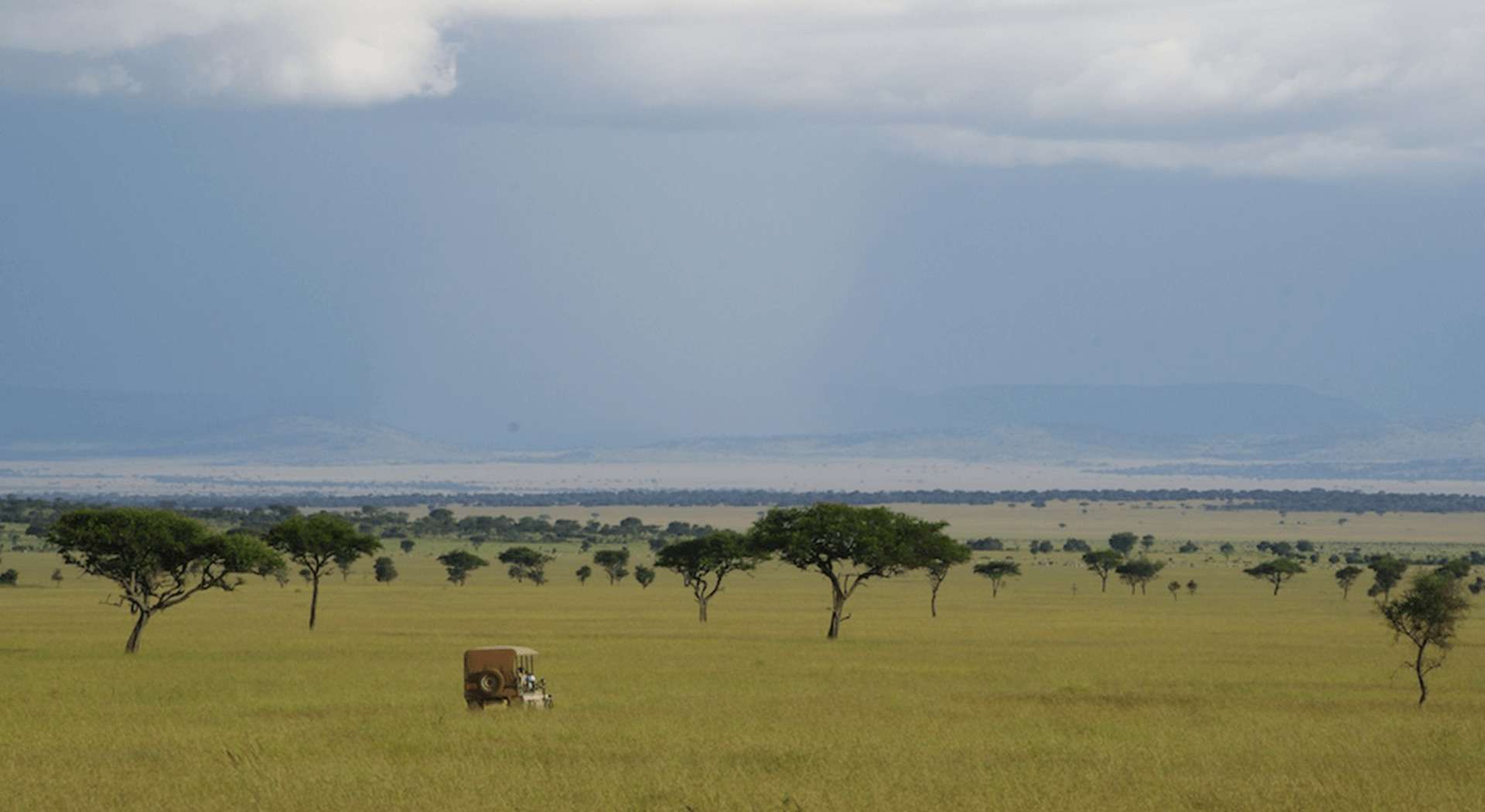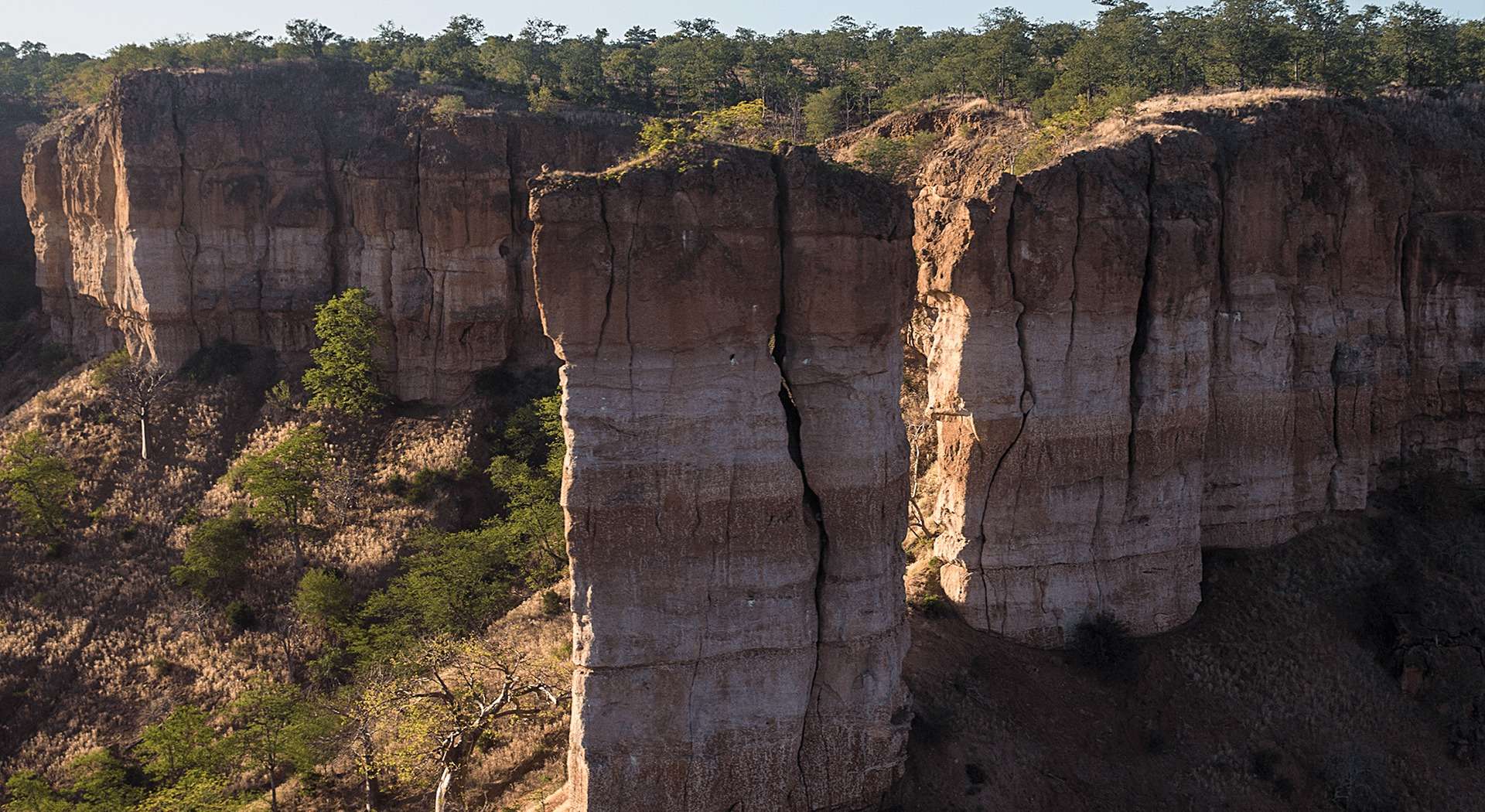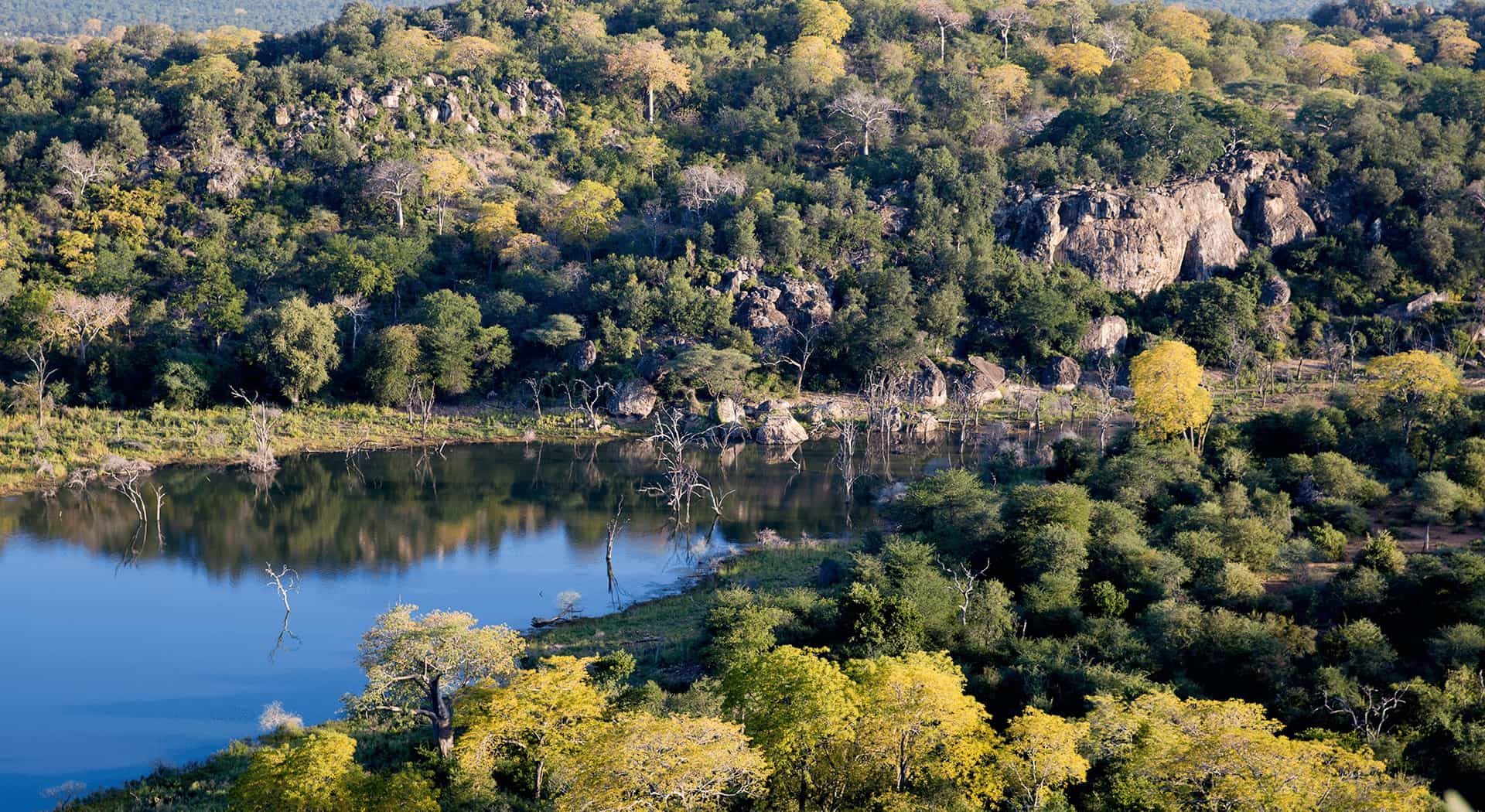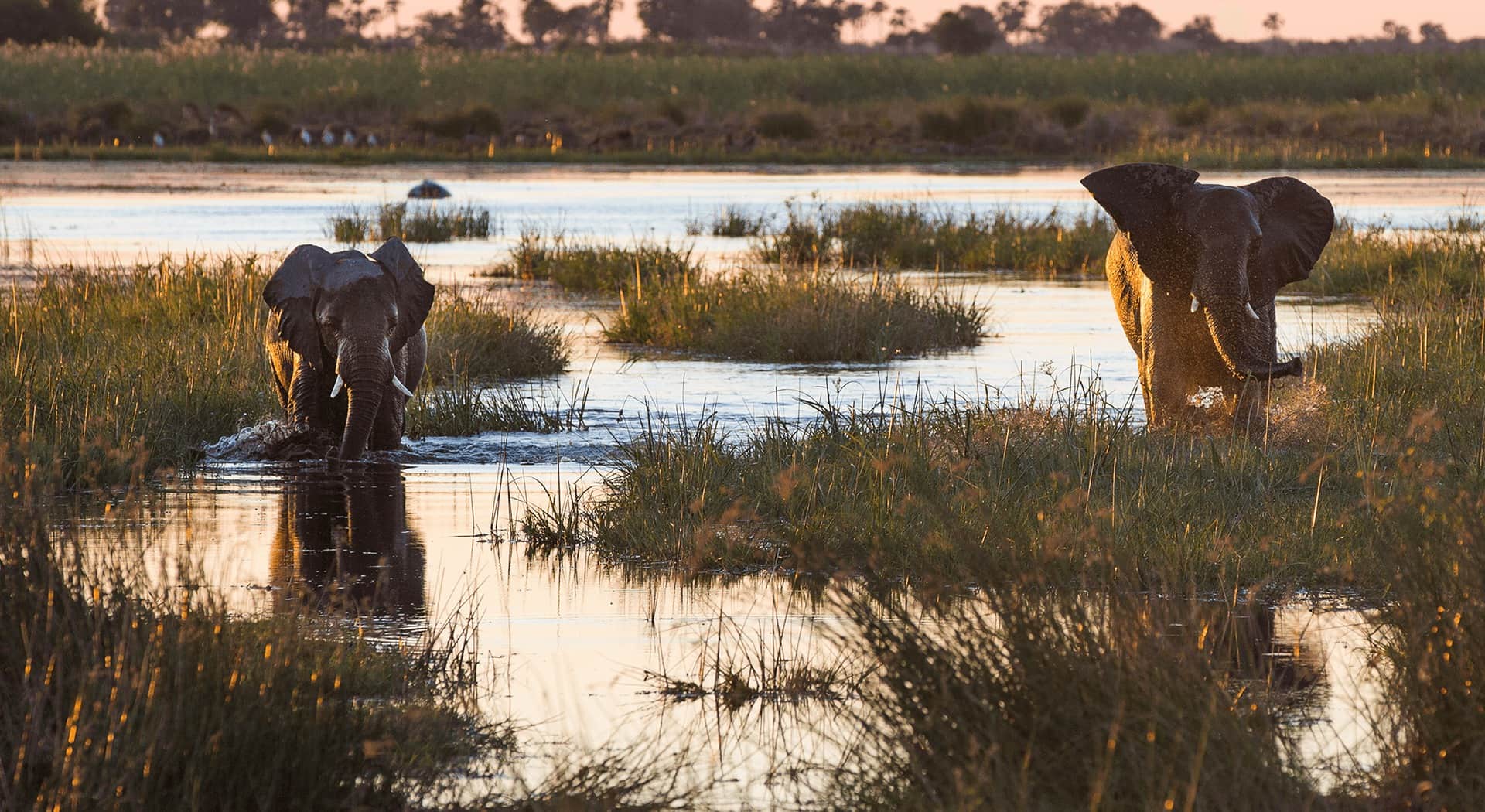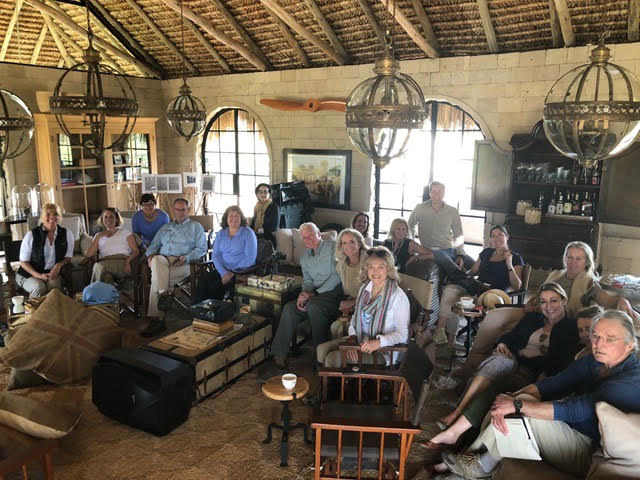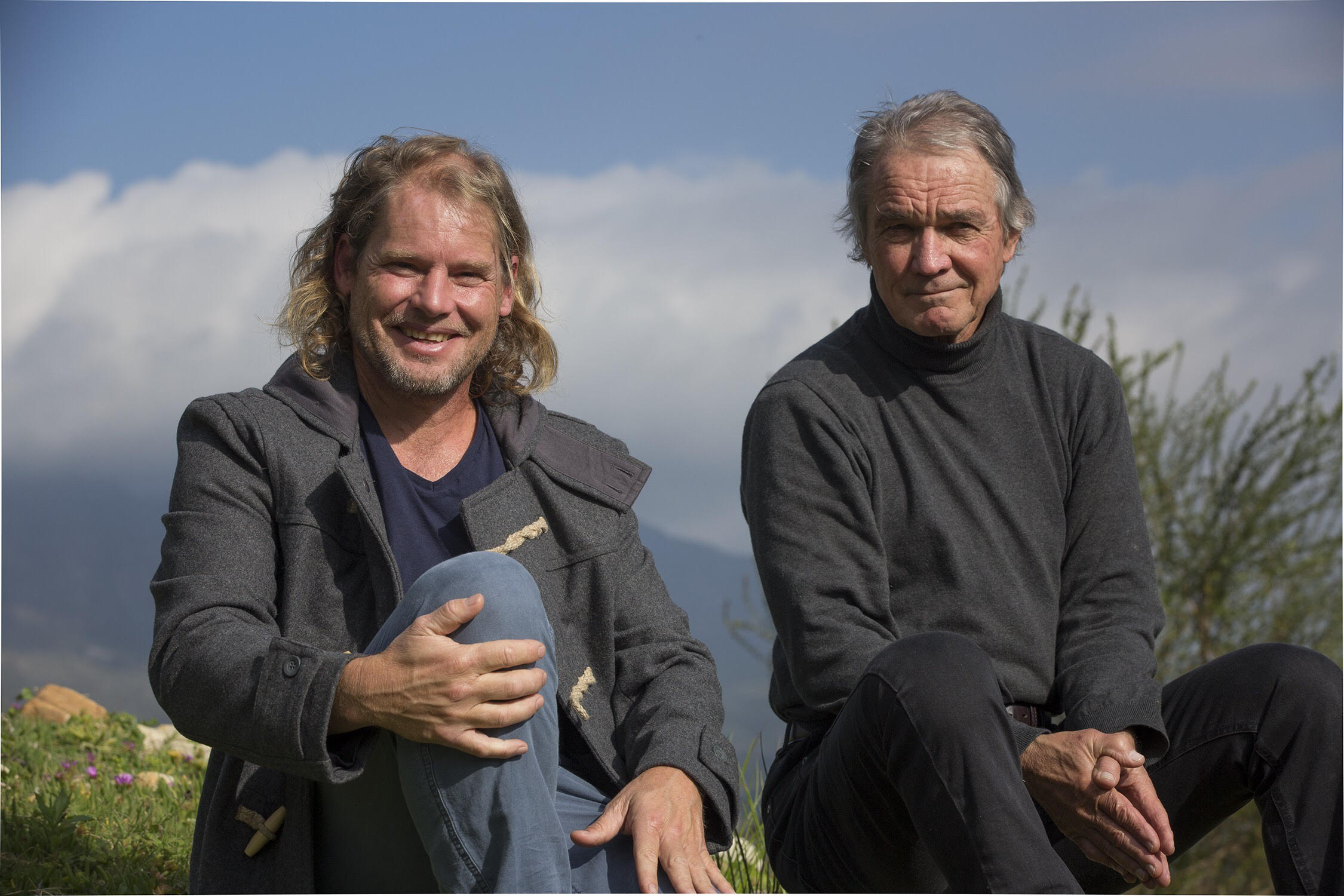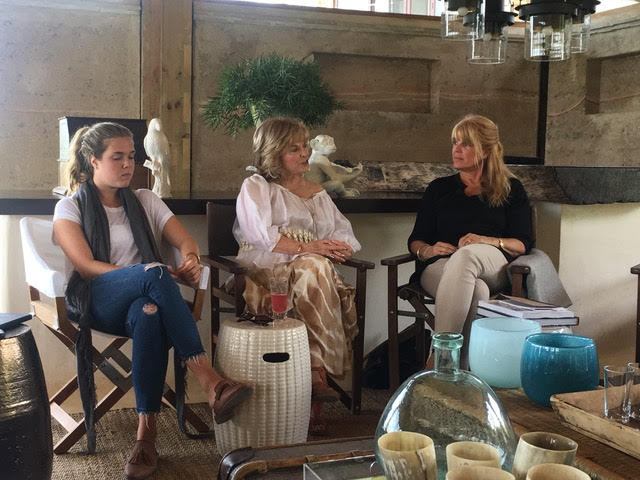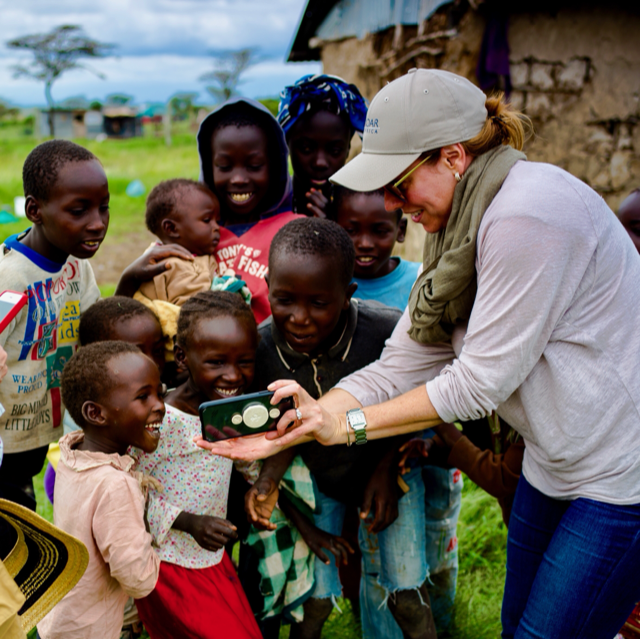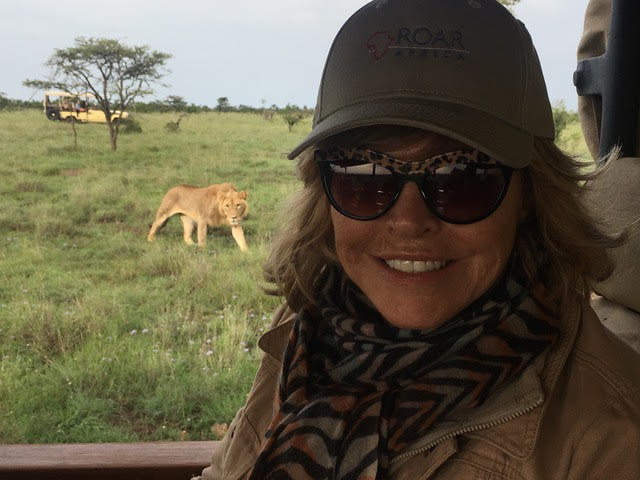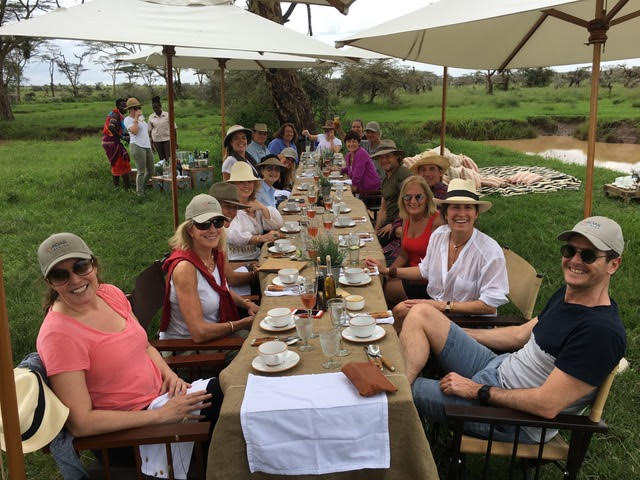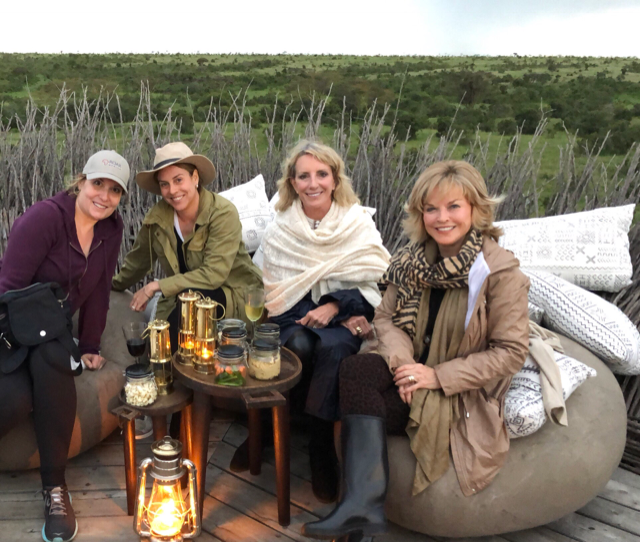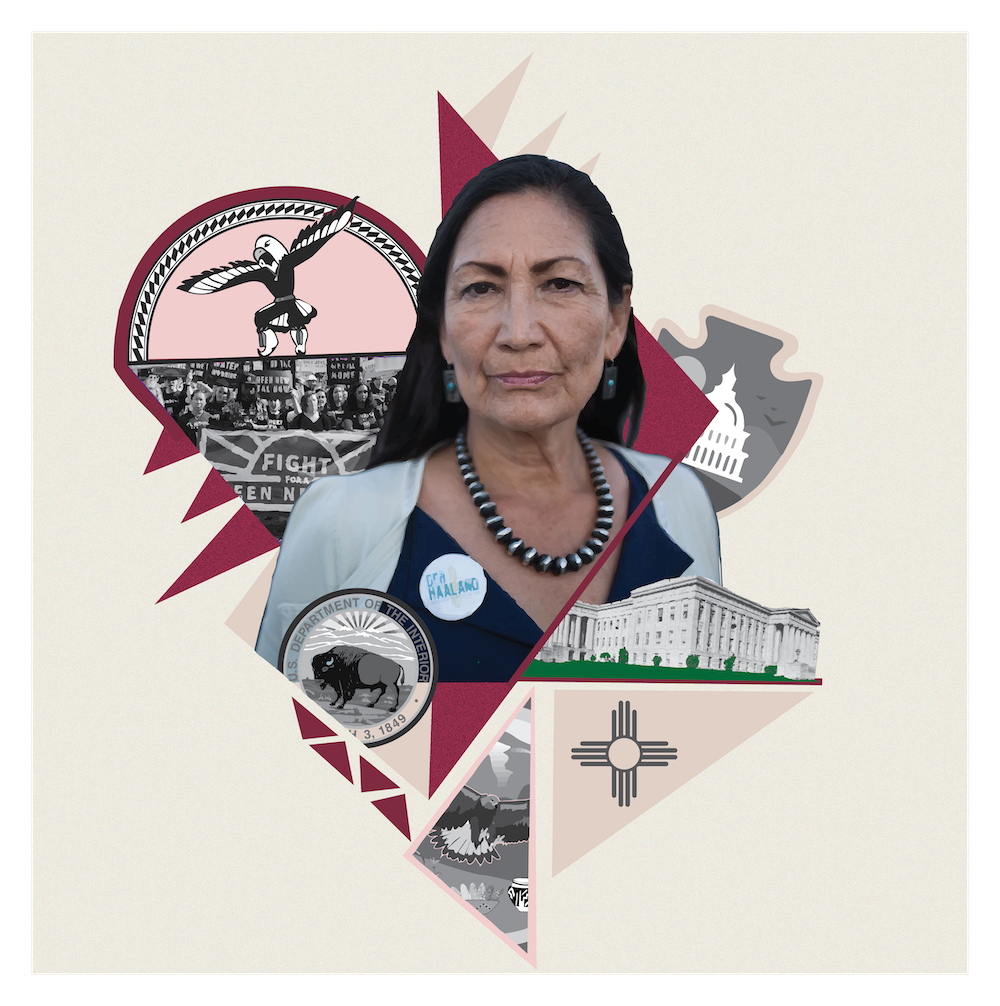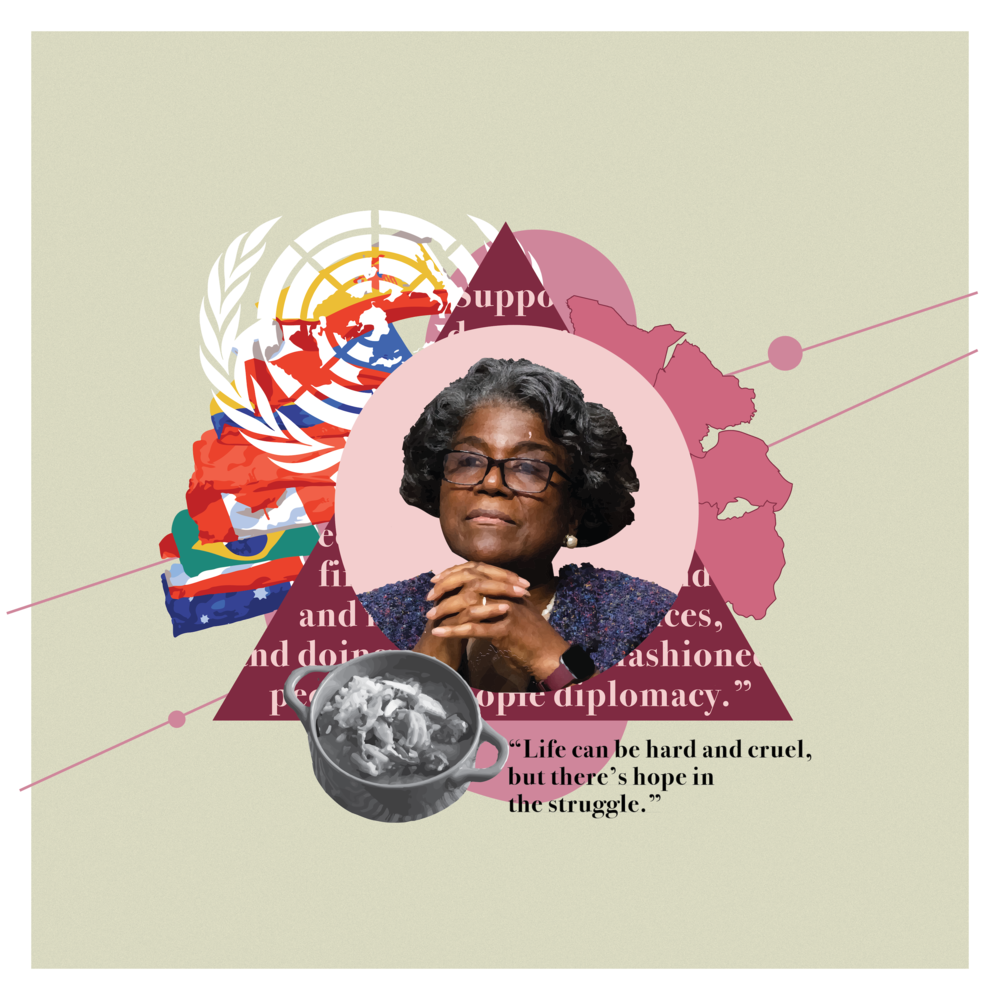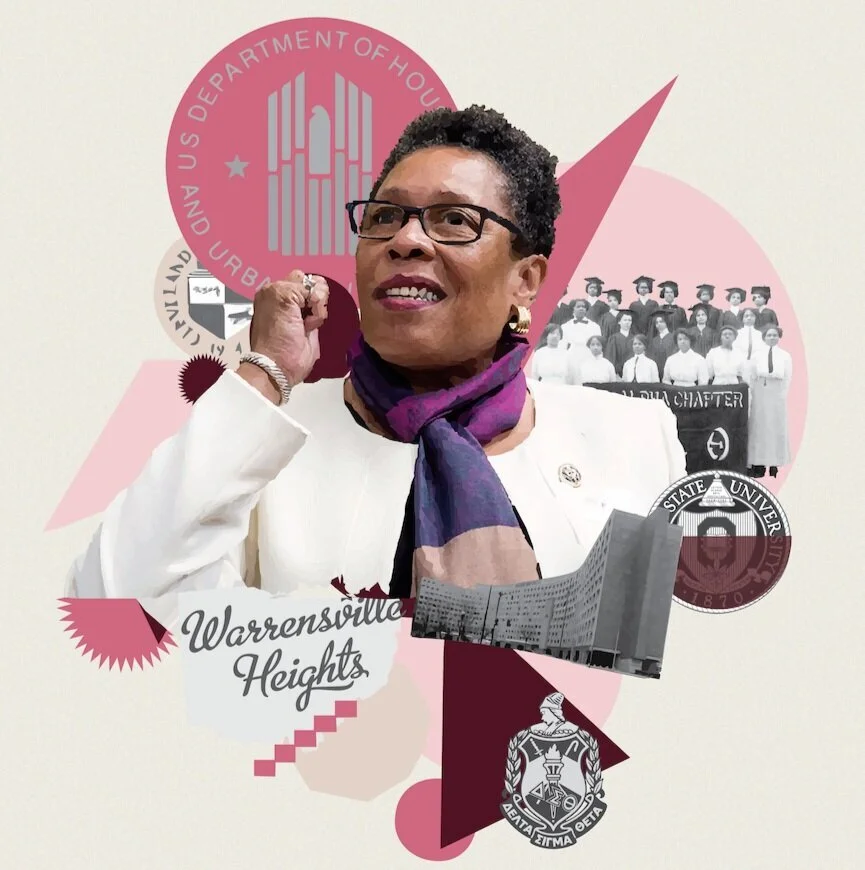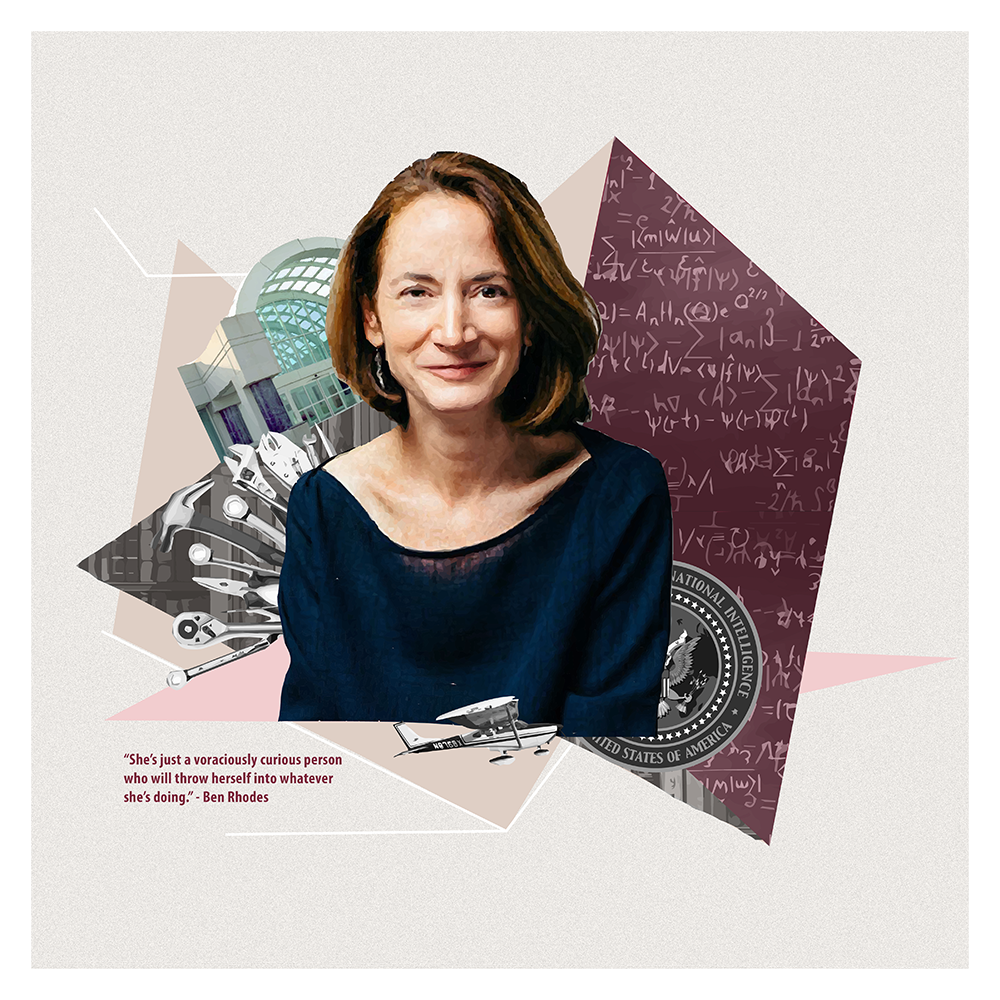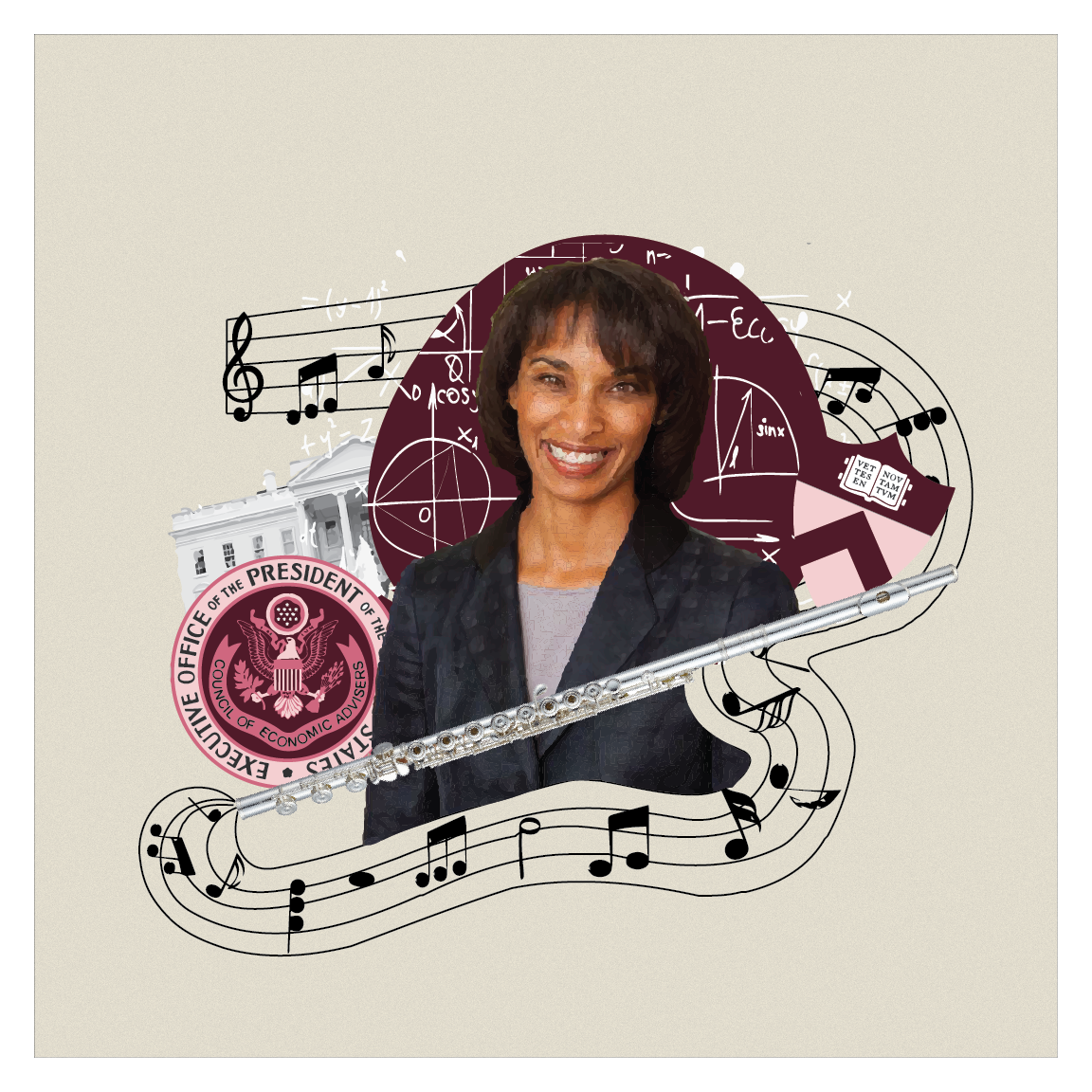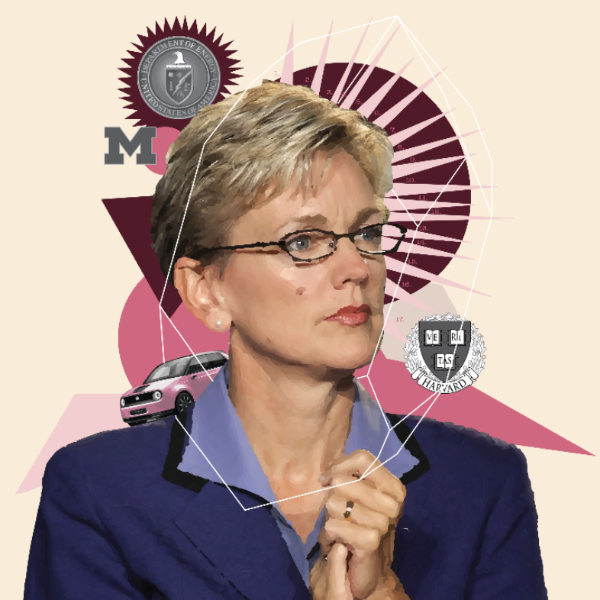"It was one of the most transformative weeks I can remember…. the realization that there are actions we can all take to change our corner of the world gave me a new sense of purpose. The reminder that no matter how disparate our lives seem, we share common threads and common narratives. Most of all, I was privileged to spend time with a group of people who find their ‘church' in the wild and recognize that we all carry the wild within us."
Group photo from the 2018 Roar & Restore Retreat at the Segera game preserve.
Powerful words from photographer, Nicole Condit Duncan, as she summarized her first Roar and Restore Retreat at Kenya’s Segera game preserve.
"Rewilding” was exactly what Deborah Calmeyer, founder and CEO of Roar Africa, had promised as part of the invitation to be among the inaugural participants in a retreat that was truly transformative for each and every one of us at Segera — an experience in rewilding. Rewilding is what psychiatrists and new research studies document as the real emotional and psychological benefits of time in the wild with nature, benefits that we can take back into our lives and work when we return home.
Segera owner Jochen Zeitz has spent the past seven years rewilding its ecosystem in a perfect balance of luxury and conservation, with a world class art collection on site, food prepared from its own gardens, solar powered and natural resources reused by Segera and the surrounding communities. We spent a week in the beautiful landscape of Northern Kenya in the Laikipia Hills region, taking daily game drives through the million acres, observing and feeling the natural rhythms, sounds and sightings of Africa's big animals.
In addition to these benefits, the Retreat also included compelling presentations from thought leaders who led us on learning journeys — what some described as "TEDTalks on Safari." Dr. Ian McCallum, South Africa’s highly respected psychiatrist, poet, writer and conservationist, challenged us to open our minds to the shift in perspectives that occurs when we spend more time in the natural world. “There is no such thing as human nature. There is just nature,” he told us.
Wanjira Mathaai, daughter of Nobel Peace Prize Wangari Mathaai, her daughter and husband with Laura Turner Seydel in the People's Park where her mother planted one million trees. We added a few!
We went on a creative journey with South Africa’s best-known sculptor, Dylan Lewis, and I had the fun of moderating a conversation about intergenerational conservation-centered work with my daughter-in-law Laura Turner Seydel and granddaughter, Vasser. All of us learned how to better care for ourselves in a compelling presentation by nutritionist Tracey Harrison.
Part of every Roar Africa learning journey is devoted to interactions and presentations with local communities —in this case, we met with Wanjira Maathai, daughter of Nobel Peace Prize laureate Wangara Maathai, and participated in planting trees in the People’s Park in Nairobi. We also visited the communities surrounding Segera to meet with women leaders who have come together to create a school and a craft collective.
The five days flew by in a unique combination of discovery and deep reflection. All agreed that having roared with lions, stimulated our minds with new ideas and perspectives, restored our bodies with fabulous food, memorable massages and other pleasurable treats, we felt, yes, “re-wilded.”
For several years now, I have served on the board of Roar Africa, the top-rated Africa-based, women-owned and -led company that offers these specially designed experiences that combine Africa’s best safaris with adventures not included on the usual tourist itineraries. These are experiences that are designed with purpose to go deeper, connecting participants with local communities and good work. Some of the proceeds from the Learning Journeys go towards supporting the work we were privileged to experience firsthand.
The inaugural Roar and Restore Retreat and the impact it had on our guests convinced us that we wanted to return to Segera. It’s the perfect retreat to restore mind, body and spirit. If you’re interested in learning more about travel with purpose, visit RoarAfrica.com.
With gratitude,
— Pat

